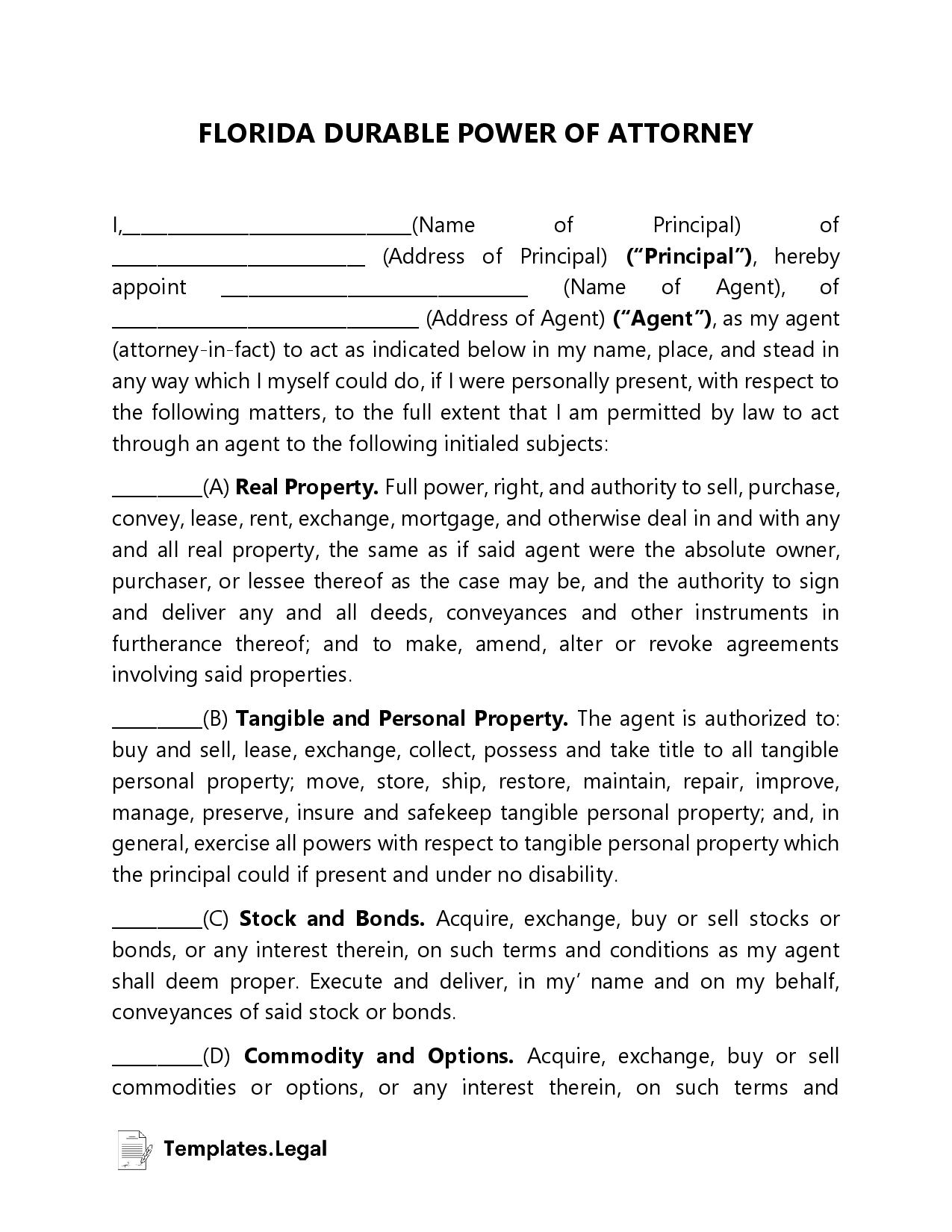
A Florida power of attorney lets a person grant someone authority over their financial, medical, parental, or other affairs. Individuals usually sign these forms when they know that they will be incapable of making these decisions themselves.
Contents hideThe person who grants the POA (also called the grantor or principal) enlists someone to act in their place (the agent or attorney-in-fact), so this agent is often a trustworthy, intelligent, and capable friend or relative.
The grantor chooses a power of attorney form Florida and signs it with the agent. These forms need plenty of legal consideration and review to ensure that everyone involved understands their responsibilities upon signing the agreement. Communicating with a lawyer will help you make sure you comply with Florida law.
A durable power of attorney applies when a grantor wants someone to decide on their behalf if they become incapacitated until they can regain control over their affairs again. A principal who has undergone illness or an accident may request one. You will need two witnesses and a notary public to sign.

You can get a general power of attorney Florida if you wish to let one person handle your financial matters. They will have the legal right to carry out all affairs on the grantor’s behalf unless they become incapacitated or die. Then, the authorization nullifies. You will need two witnesses and a notary public to sign.
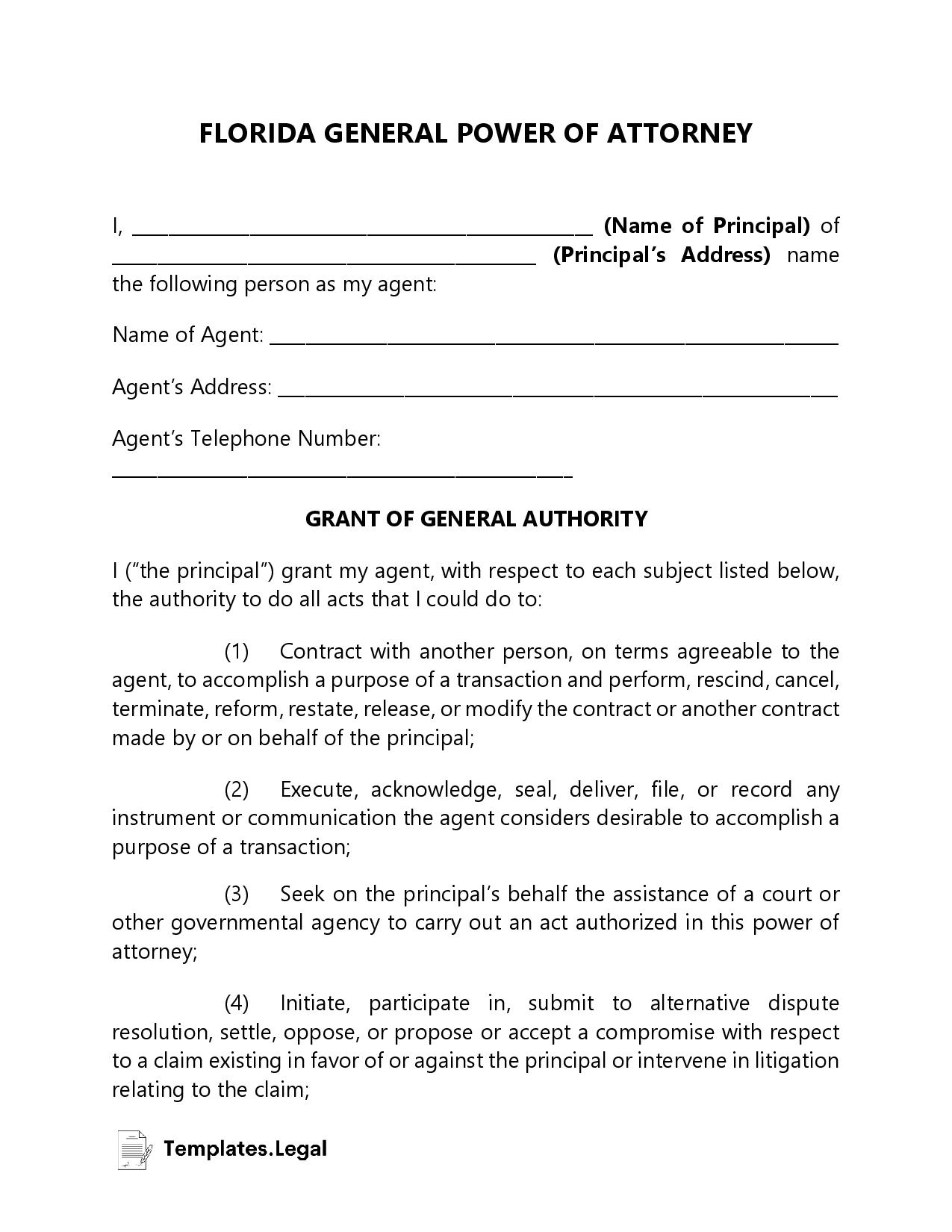
A limited power of attorney means the grantor must specify the agent’s powers over particular affairs. For example, the attorney-in-fact can file taxes but cannot make medical decisions. The authority nullifies if the principal dies or becomes incapacitated. You will need two witnesses and a notary public to sign.
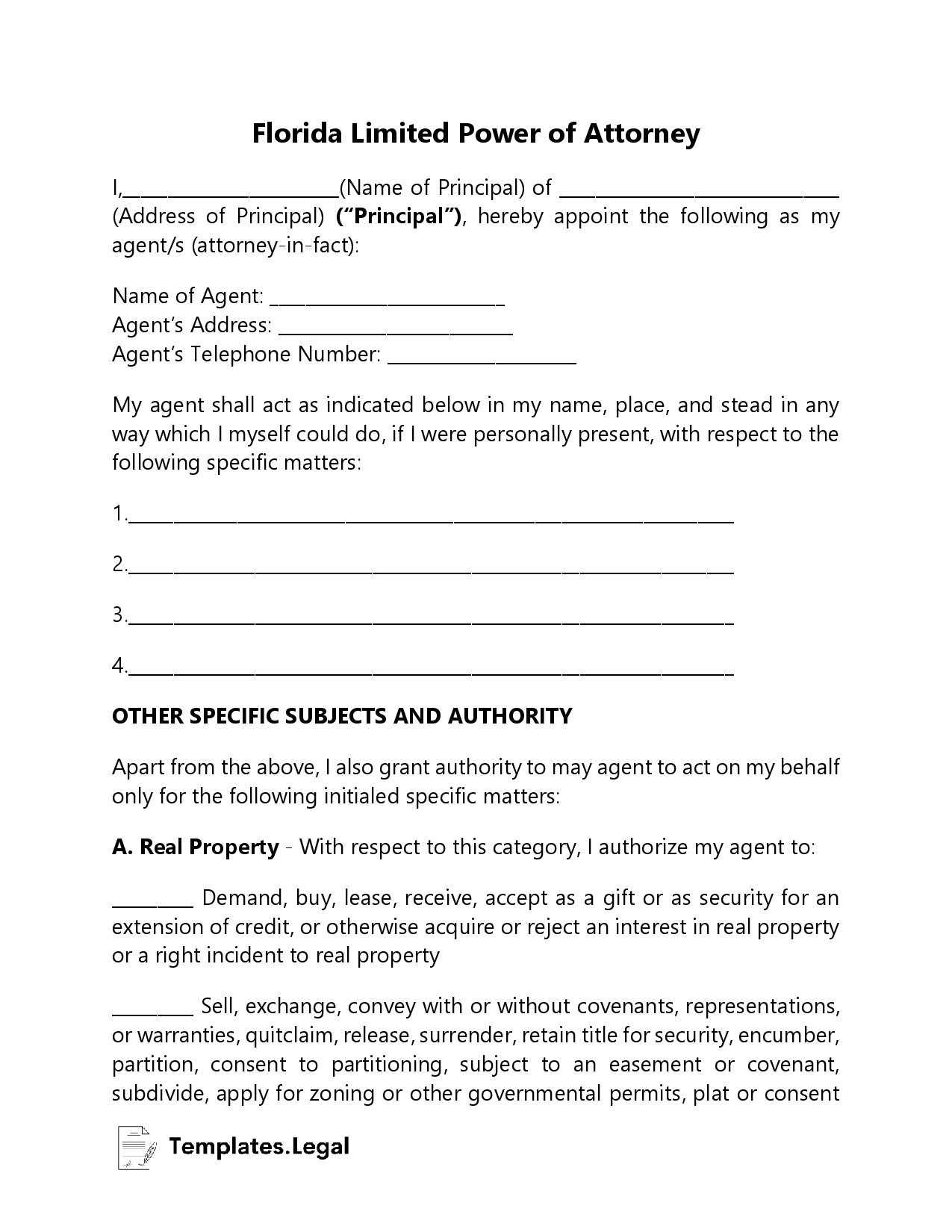
A designation of health care surrogate form lets the agent make medical decisions on the grantor’s behalf when they cannot make them alone. High-risk employees, elderly individuals, and terminally ill patients may sign medical POAs in case of an emergency. You will need two witnesses to sign.
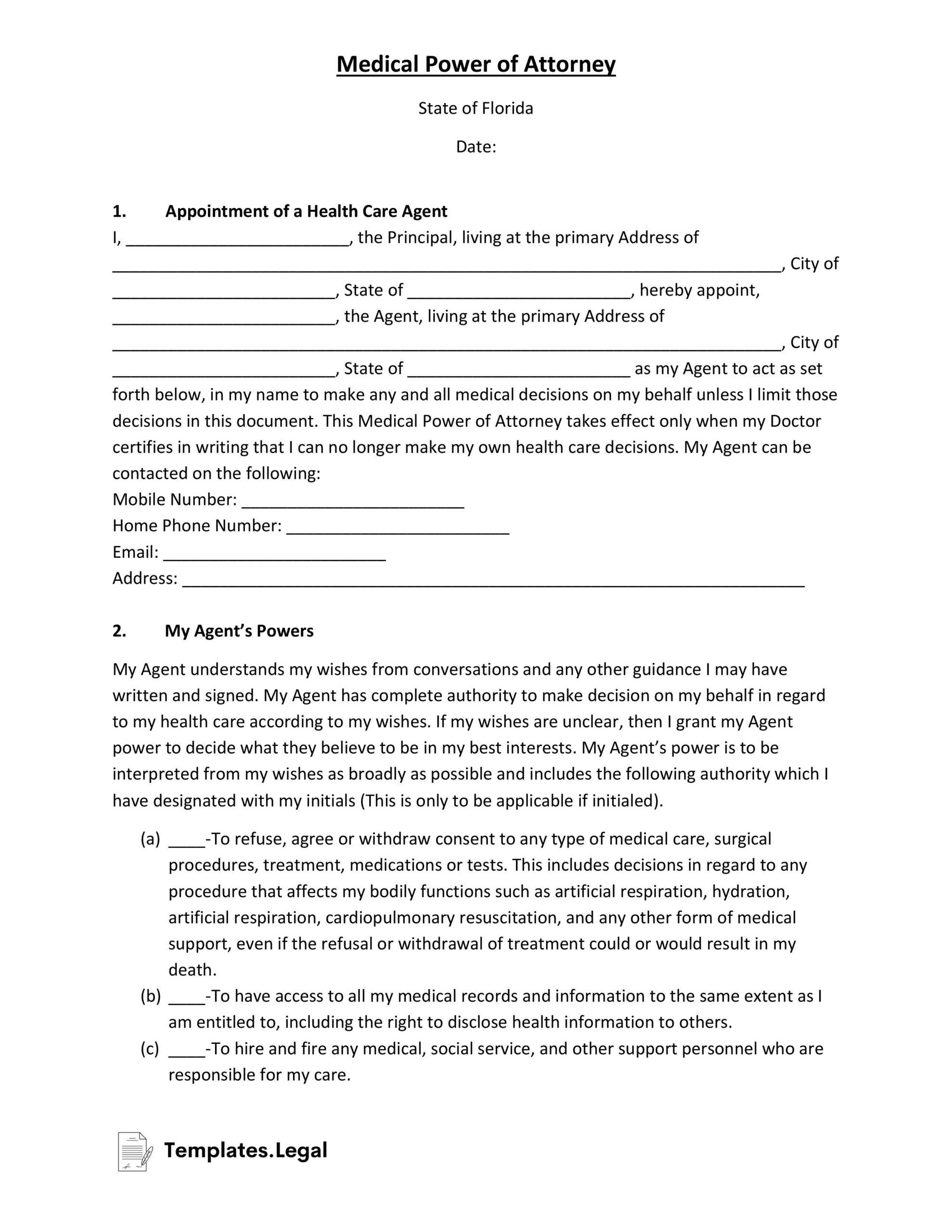
This POA lets a parent enlist someone as a temporary guardian if they are absent during a child’s medical emergency. Parents often sign these if they leave the country for a period. You will need a notary public and two witnesses to sign.
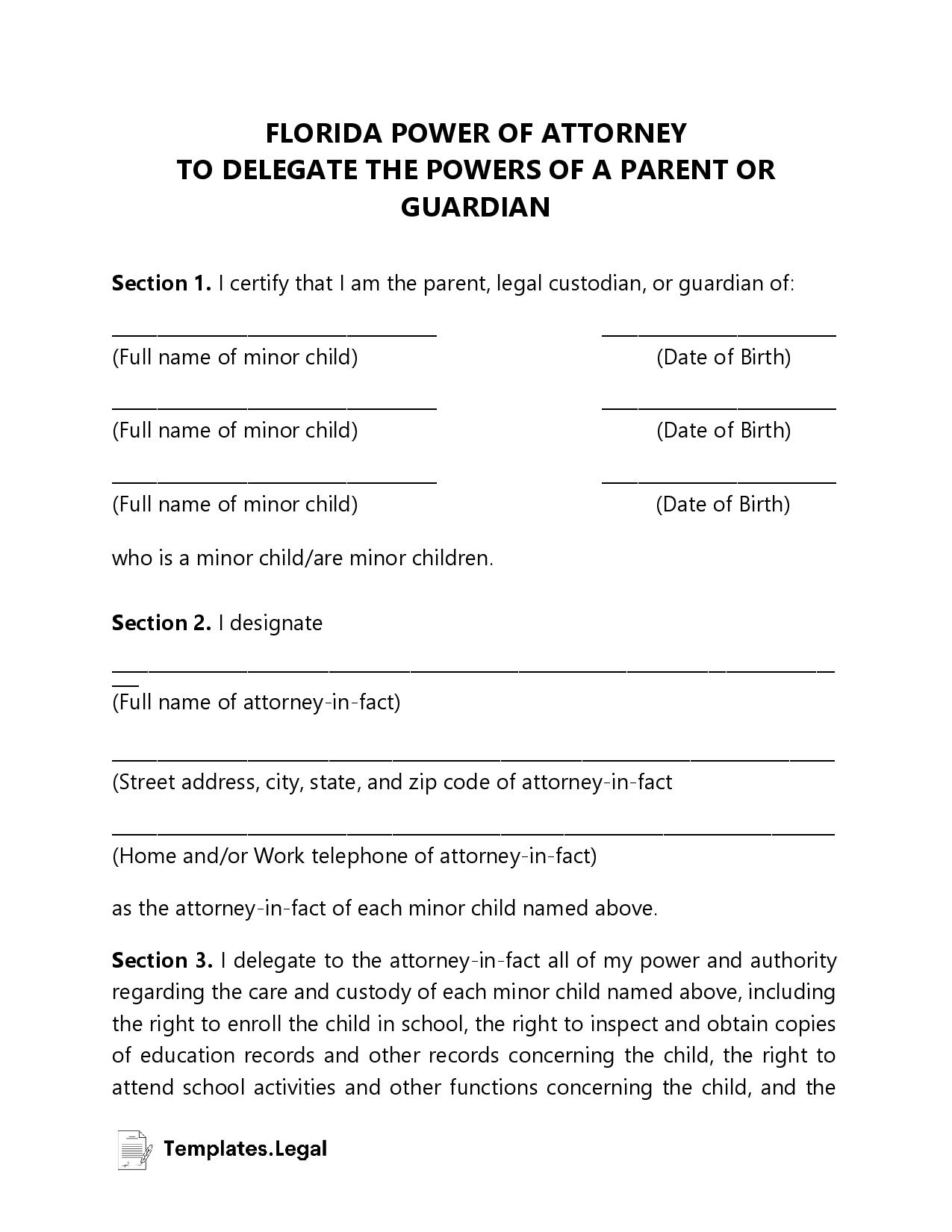
Here are some common questions about Florida power of attorney requirements.
How to get power of attorney in Florida?You can get a free Florida power of attorney form on our website. Try to contact a lawyer for advice on meeting POA requirements.
How to revoke a power of attorney in Florida?You can revoke a power of attorney in Florida by signing a separate form. It will end the grantor-agent relationship. This document needs notarization.
How to notarize a power of attorney in Florida?Since most of these forms require a notary public to sign for validity, you will need to contact a notary to get the job done.